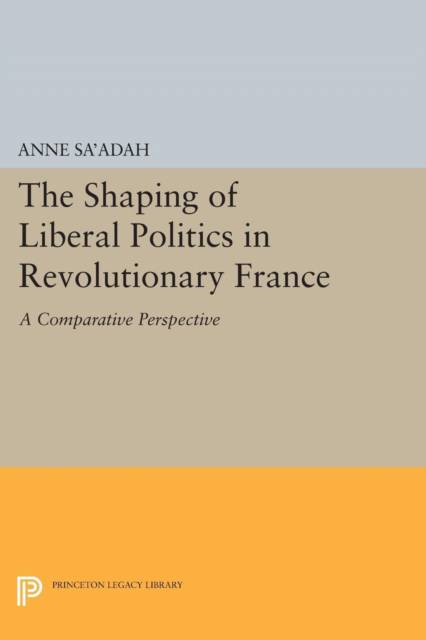
- Afhalen na 1 uur in een winkel met voorraad
- Gratis thuislevering in België vanaf € 30
- Ruim aanbod met 7 miljoen producten
- Afhalen na 1 uur in een winkel met voorraad
- Gratis thuislevering in België vanaf € 30
- Ruim aanbod met 7 miljoen producten
Omschrijving
Marshalling historical materials to make a descriptive argument in social theory, this wide-ranging book compares the liberal revolution in France to the liberal revolutions in England and America and argues that the causes and outcomes of these upheavals were decisive in shaping later patterns of politics. "Conflict is the stuff of politics," writes Anne Sa'adah, and liberal politics, because of its emphasis on the individual and its legitimation of self-interest, complicates the task of creating political community in a particularly interesting way. In England and America, the tension between conflict and community was resolved in a manner consistent with political stability. In France, the tension produced an instability that has surfaced periodically throughout subsequent French history. Why this is so is the subject of a work that treats the making of the modern political world in an unusually systematic way.
In France, England, and America, the relationship of the state to society under the prerevolutionary regime limited revolutionary options. Sa'adah focuses on how this relationship created a politics of exclusion in France, while allowing a politics of transaction in England and America. Originally published in 1990. The Princeton Legacy Library uses the latest print-on-demand technology to again make available previously out-of-print books from the distinguished backlist of Princeton University Press. These editions preserve the original texts of these important books while presenting them in durable paperback and hardcover editions. The goal of the Princeton Legacy Library is to vastly increase access to the rich scholarly heritage found in the thousands of books published by Princeton University Press since its founding in 1905.Specificaties
Betrokkenen
- Auteur(s):
- Uitgeverij:
Inhoud
- Aantal bladzijden:
- 266
- Taal:
- Engels
- Reeks:
- Reeksnummer:
- nr. 1135
Eigenschappen
- Productcode (EAN):
- 9780691601656
- Verschijningsdatum:
- 14/07/2014
- Uitvoering:
- Paperback
- Formaat:
- Trade paperback (VS)
- Afmetingen:
- 156 mm x 234 mm
- Gewicht:
- 376 g

Alleen bij Standaard Boekhandel
Beoordelingen
We publiceren alleen reviews die voldoen aan de voorwaarden voor reviews. Bekijk onze voorwaarden voor reviews.











